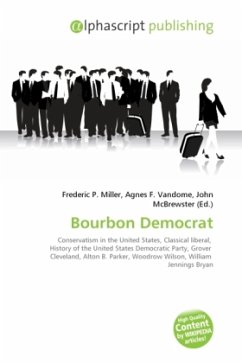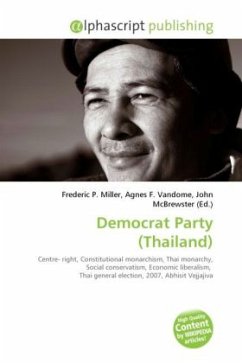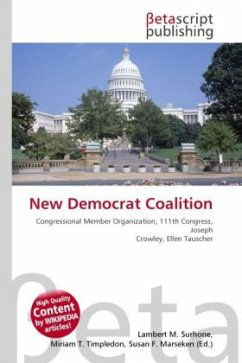Bourbon Democrat was a term used in the United States from 1876 to 1904 to refer to a conservative or classical liberal member of the Democratic Party, especially one who supported President Grover Cleveland in 1884 1896 and Alton B. Parker in 1904. After 1904, the Bourbons faded away. Woodrow Wilson, who had been a Bourbon, came to terms with William Jennings Bryan in 1912. Bourbon Democrats represented business interests, supported banking and railroad goals (but opposed subsidizing banks, railroads or other enterprises - or protecting them from competition), promoted laissez-faire capitalism (which included opposition to the protectionism Republicans then advocated), opposed imperialism and U.S. overseas expansion, fought for the gold standard, and opposed bimetallism. They strongly supported reform movements such as Civil Service Reform and opposed corruption of city bosses, leading the fight against the Tweed Ring
Bitte wählen Sie Ihr Anliegen aus.
Rechnungen
Retourenschein anfordern
Bestellstatus
Storno








